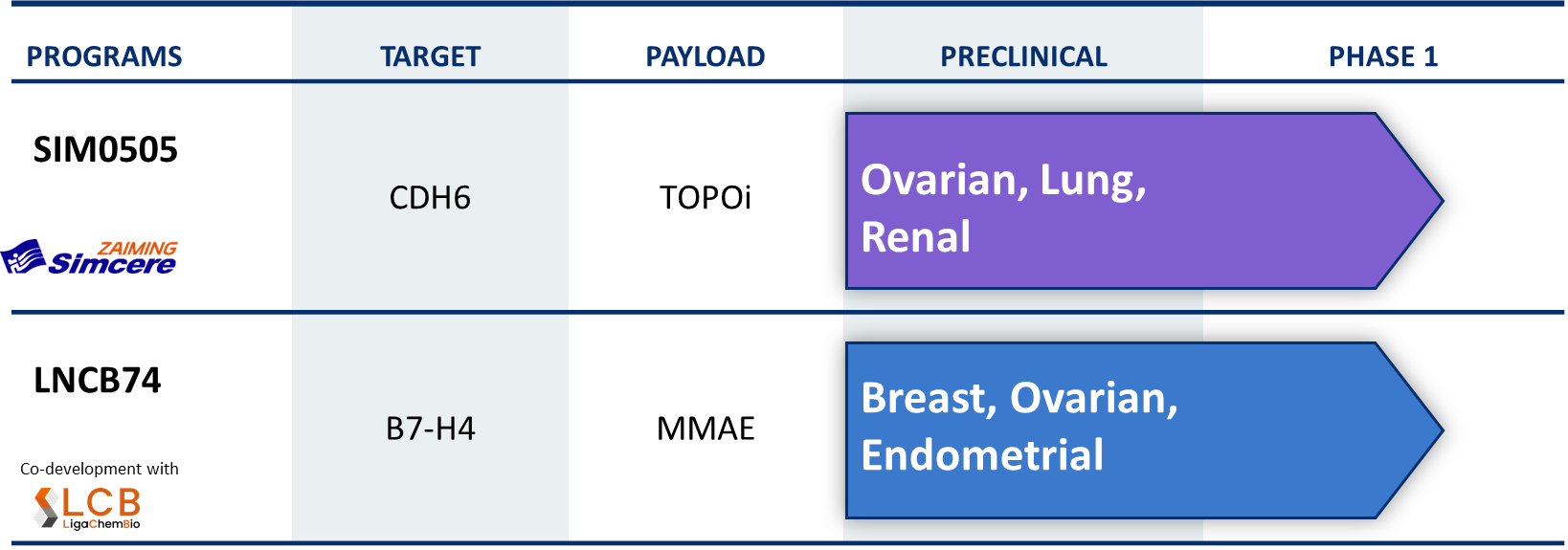
SIM0505
SIM0505 is an antibody-drug conjugate that binds specifically to CDH6, a validated target on tumors. CDH6 protein is expressed on multiple tumor types, including ovarian, lung and renal cancers. SIM0505 has a proprietary payload, CPT116, a topoisomerase 1 inhibitor, designed for broad anti-tumor activity and strong cytotoxicity, while offering high systemic clearance, and improved safety. Preclinical studies have demonstrated robust anti-tumor activity across multiple solid tumor models. SIM0505 is currently in Phase 1 clinical testing in U.S. and China.
LNCB74
LNCB74 is an antibody-drug conjugate that binds specifically to B7-H4, a validated target on tumors. B7-H4 protein is expressed on multiple tumor types, including many cancers specific to women (breast, ovarian and endometrial). LNCB74 has been specifically designed to reduce toxicity while improving tumor killing. Our research showed LNCB74 has potent antitumor activity in animal models, including models with low expression of B7-H4. LNCB74 is currently in Phase 1 clinical development.
Expanded Access Policy
NextCure Expanded Access Policy can be viewed here.

